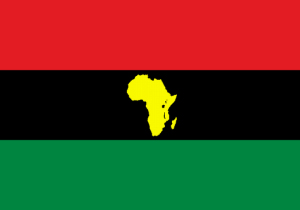By Semiha Abdulmelik:
‘Meaningful participation in African conflict-resolution processes is not an important aspect of China’s current Africa relations. China is becoming increasingly important in the landscape of African politics, including in conflict-affected theatres, but is not as significant an actor as external perceptions contend. Nor has the Chinese government shown any particular inclination for more active engagement beyond spheres such as Sudan where the need is more compelling’’.[1]
Dan Large (SOAS), 2008, in China’s role in the mediation and resolution of conflict in Africa.
These words, written just seven years ago, now seem out of date. We are now witnessing what might be described as a significant if incremental evolution in China’s involvement in Africa’s peace and security. It is more structured, purposeful, and beyond countries of immediate interest, if still exploratory.
China’s peace and security engagement on the continent has predominantly been characterised as driven by economic interests in countries in which it has significant investments. This is the narrative most commonly seen in the Western media and academia: strict adherence to the principle of non-interference in the internal affairs of countries and comprising of bi-lateral military cooperation and arms trade. How this has evolved will be the focus of this piece.
With China’s increasing focus on its global power and the associated reputational risks, as well as the emerging realities of its deepening political engagement in Africa, a number of defining shifts can be observed. China’s concerted efforts to resolve the South Sudanese conflict is a case in point. China has dispatched its Special Representative for African Affairs, Zhong Jianhua, to conduct shuttle diplomacy, support the Inter-governmental Authority on Development’s (IGAD) efforts, and create forums for dialogue between the parties.[2] He noted that China’s meeting with South Sudanese opposition was ‘pretty dramatic for us. I think for the last two or three decades we were quite rigid about non-interference in the internal affairs of other countries… this is a typical domestic conflict. Usually when this happens, we try to avoid making direct contact with the opposition because, to some extent we think, it’s a rebel force. When you talk to a rebel force that means stepping into internal affairs.’ [3]
But Chinese mediation efforts in South Sudan suggest that China is reconsidering its long-standing belief in non-interference as part of its commitment to support peace and security in Africa.[4] This change comes from an understanding that it is essential for the achievement of its development policy and goals in Africa that there be peace and security.
Interestingly, Jiahua was also clear that China did not have the academic or analytical expertise to understand internal African conflicts.[5] Indeed, China’s approach has been less about a nuanced understanding of the conflict dynamics but a kind of ‘oil diplomacy’ grounded in its ability to appeal to the economic rationale and incentives of the warring parties.[6] In this regard, the Chinese government is currently promoting African Studies[7i] in its academic and research institutions – pointing to the growing importance of non-state (academic/research) linkages between China and Africa in mediating and informing this growing engagement.[8]
In contrast to Sudan and South Sudan, where China has a significant economic presence, and hence more evident engagement in conflict mediation efforts, there are other parts of Africa where China does not have the same immediate interests yet is still involved in fostering peace and security. In Mali, China has contributed over 500 military troops to the UN peacekeeping mission (a quarter of its total UN troop contributions).[9] This is significant because China does not often deploy military personnel; previously it had only deployed logistical and medical personnel.[10] Interestingly, given the lack of significant Chinese interests in the country, Chinese efforts appear more in pursuit of broader regional stability where it has varied interests.
This attention to China’s role in UN peacekeeping in Africa suggests that China is now placing greater emphasis on multilateral approaches to peace and security partnerships in Africa. While this has often been seen by Chinese commentators and others following Chinese foreign policy[11] as an attempt by China to consolidate its ascendancy as a global power, this involvement has arguably been ‘evolving in an open-ended way’.[12] China has, for instance, proven more progressive in supporting the use of force to protect civilians in through the UN mission in the DRC while at the same time continuing its traditional resistance to the establishment of a human rights office for the UN mission in Sudan.[13]
China’s increasingly multilateral approach to peace and security cooperation in Africa is not only through the UN but also through regional organizations – the African Union (AU) in particular. The admission of the African Union Commission in October 2011 as a full member of the Forum of China-Africa Cooperation (FOCAC) has undoubtedly paved the way from more concrete cooperation in the area of peace and security between China and the African Union (AU).
Three years later, the Government of China and the AU co-launched the AU-China Strategic Dialogue for Peace and Security in Africa.[14] This regional multilateral cooperation is predicated on two pillars. Firstly, financial and technical support for various aspects of the African Peace and Security Architecture (APSA), including AU peace support operations and mechanisms such as the African Standby Force and African Capacity for Immediate Response to Crises. Secondly, cooperation at an international level, particularly on African positions at the UN Security Council and on UN Security Council reform.
Chris Alden, one of the few writers to analyse China’s multilateral engagement with the African Union on peace and security issues, argues that China’s desire for more systematic and institutionalized cooperation on peace and security in Africa is in tension with Chinese foreign policy principles and economic interests. This is particularly so given the underlying normative basis for APSA, namely the principle of non-indifference and provision for intervention in Member States.[15] As such, he sees three emerging ways in which China could engage with the APSA, all of which it already exhibits to varying degrees: as architects (through the formulation of new or refinement of existing foreign policy and security norms); builders (through participation in multilateral security and peacekeeping operations); and/or as subcontractors (through offering specific and time-bound solutions for security challenges) of the APSA.[16]
It is clear that China’s engagement in Africa’s peace and security has evolved, both with regards to its principles of engagement, geographic scope, and institutional interlocutors. As Alden’s exploratory research has indicated, there will continue to be interest – and a research agenda – in seeing how this evolves further and consolidates in the long-term with regards to Chinese foreign policy. Of further interest will be how this plays out in international efforts to secure peace and security in Africa, from possible tensions or cooperation between the West – Africa’s traditional peace and security partner – and China, to UN Security Council level reforms. Yet what is missing and crucial is African perspectives and experiences: this should preoccupy the new generation of African academics and researchers.
Semiha Abdulmelik is currently a Fellow at the African Leadership Centre in Kenya. Her research interests include humanitarian diplomacy, regional organizations, post-conflict reconstruction, and the security dynamics of the Horn. You can follow her on Twitter at @SAbdulmelik.
NOTES [1] Large, D. (2008), China’s role in the mediation and resolution of conflict in Africa, Oslo Forum Network of Mediators, accessed at http://www.hdcentre.org/uploads/tx_news/20DanLargeChinainAfricaWEB.pdf, pp. 35-41. China’s significant resource interests in Sudan, including its substantial economic investment, presence of nationals and oil operations and facilities, particularly in Darfur, has put the Sudan conflict and its resolution as a top interest for the Chinese government.
[2] China to hold consultative conference on South Sudan in Khartoum, Sudan Tribune, January 6, 2015 accessed at http://www.sudantribune.com/spip.php?article53569
[3] Fabricius, P. (2014), China plays mediator in Africa, The Sunday Independent, November 2, 2014, accessed at http://www.iol.co.za/sundayindependent/china-plays-peacemaker-in-africa-1.1774195#.VK0zOyuUcT8
[4] Indeed, Chinese officials have been quick to point to the Chinese commitment during the 2012 Forum of China-African Cooperation (FOCAC) to do more in the area of peace and security in Africa.
[5] Ibid
[6] Fabricius, P. (2014). In Fabricius’s interview with him, Jiahua admits that that he does not know the triggers for the South Sudanese civil war or who is to blame. Instead the approach has been to reiterate what was conveyed to both parties when oil production was shut down in 2012. “I persuaded them that this is the most important property not only of the government but also of the people of South Sudan. Look at this country; the biggest, the most important for the survival of the people is this oilfield. For some like Large (2008) however, this is an indication to a lesser degree of China’s lack of experience in ‘applied conflict resolution’ and more a demonstration of China engaging on ‘its own terms for its own ends’.
[7] Ibid
[8] China-Africa scholarly exchanges and fora are not new. These are long-standing and have historical links to state-sponsored efforts to support communist Africa states. However, this was largely focused on technical areas such as agriculture and engineering. This concerted state effort to strengthen China’s knowledge and analytical capacity in the area of Africa’s peace and security, as well as non-state efforts to build linkages between Chinese and African researchers and institutions, such as Fahamu’s Emerging Powers Programme, are indicative of shifts that respond to current realities in the China-Africa relationship.
[9] http://www.un.org/en/peacekeeping/resources/statistics/contributors.shtml
[10] Cordano, D. (2014), China’s role in Africa’s conflicts: Military cooperation, arms transfers and involvement in peacekeeping operations, 11 April, Consultancy Africa Intelligence, accessed at http://www.consultancyafrica.com/index.php?option=com_content&view=article&id=1672:chinas-role-in-africas-conflicts-military-cooperation-arms-transfers-and-involvement-in-peacekeeping-operations&catid=60:conflict-terrorism-discussion-papers&Itemid=265
[11] Wong, C. (2013), China Embraces Peacekeeping Missions, The Diplomat, August 9, accessed at http://thediplomat.com/2013/08/china-embraces-peacekeeping-missions/
[12] Fabricius, P. (2014),
[13] Cordano, D. (2014)
[14] http://www.peaceau.org/en/article/commissioner-chergui-concludes-official-visit-to-china-launches-au-china-strategic-dialogue-for-peace-and-security-in-africa
[15] Alden, C. (2014), China’s evolving approach to the African Peace and Security Architecture, Norwegian Peacebuilding Resource Centre, accessed at http://www.saiia.org.za/news/chinas-evolving-approach-to-the-african-peace-and-security-architecture
[16] Ibid


